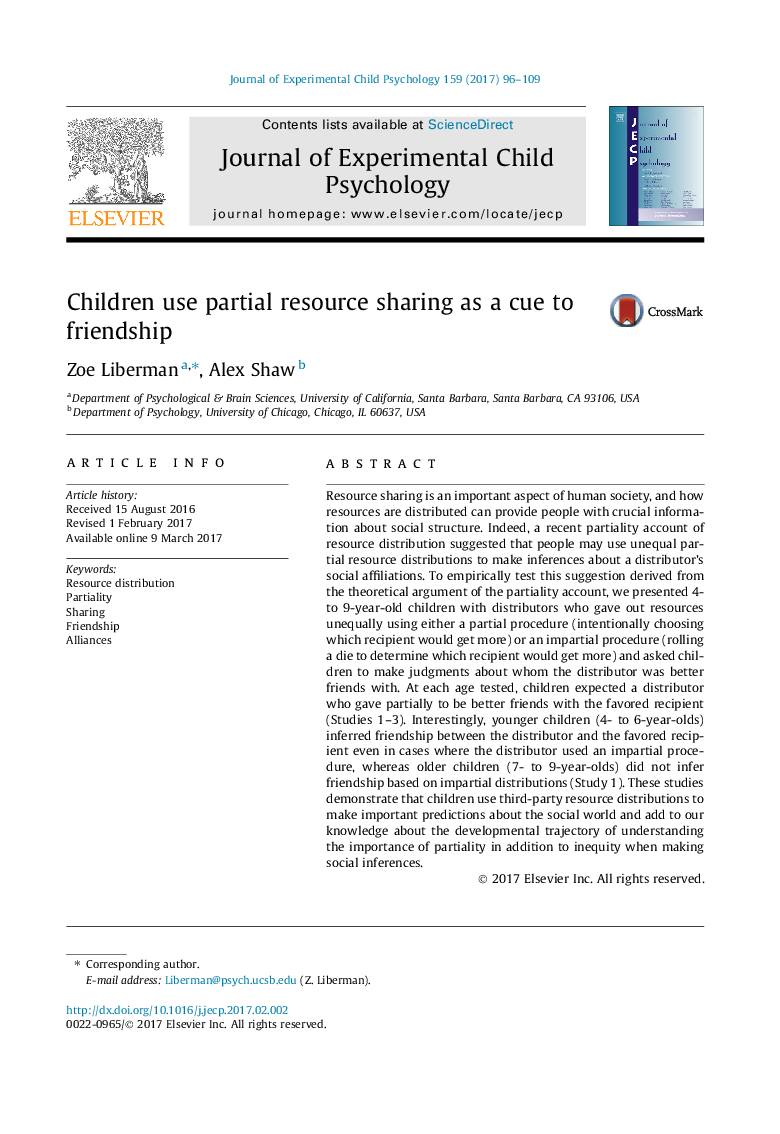| کد مقاله | کد نشریه | سال انتشار | مقاله انگلیسی | نسخه تمام متن |
|---|---|---|---|---|
| 5039982 | 1473453 | 2017 | 14 صفحه PDF | دانلود رایگان |
- Resource distribution provides information about social structure, including likely alliances.
- Children (4- to 9-year-olds) expect a distributor to be better friends with a favored recipient.
- Older children understand partiality: they did not infer friendship from impartial distributions.
Resource sharing is an important aspect of human society, and how resources are distributed can provide people with crucial information about social structure. Indeed, a recent partiality account of resource distribution suggested that people may use unequal partial resource distributions to make inferences about a distributor's social affiliations. To empirically test this suggestion derived from the theoretical argument of the partiality account, we presented 4- to 9-year-old children with distributors who gave out resources unequally using either a partial procedure (intentionally choosing which recipient would get more) or an impartial procedure (rolling a die to determine which recipient would get more) and asked children to make judgments about whom the distributor was better friends with. At each age tested, children expected a distributor who gave partially to be better friends with the favored recipient (Studies 1-3). Interestingly, younger children (4- to 6-year-olds) inferred friendship between the distributor and the favored recipient even in cases where the distributor used an impartial procedure, whereas older children (7- to 9-year-olds) did not infer friendship based on impartial distributions (Study 1). These studies demonstrate that children use third-party resource distributions to make important predictions about the social world and add to our knowledge about the developmental trajectory of understanding the importance of partiality in addition to inequity when making social inferences.
Journal: Journal of Experimental Child Psychology - Volume 159, July 2017, Pages 96-109
